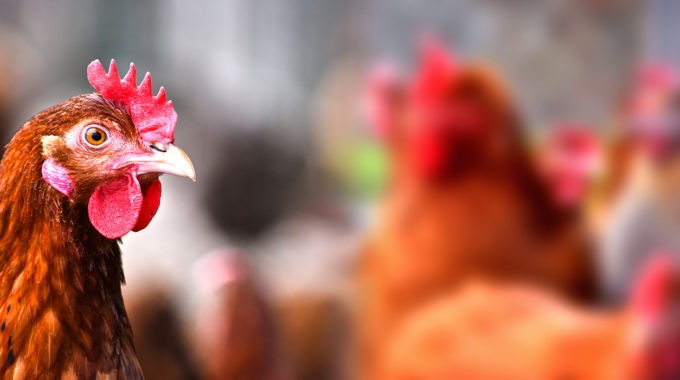Be a good egg: how to choose wisely
Most eggs you’ll find in supermarkets now are not cage eggs. But what about the eggs you’ve ordered at brunch? Here’s how you can choose wisely for a kinder world.
When we shop for eggs at our local grocery store, most of us will automatically reach for cage-free, barn-laid or free-range eggs. In fact, the majority of eggs you’ll find on supermarket shelves these days are not caged eggs. But this wasn’t always the case. Cage eggs were once the norm – they were the main source of eggs for our supermarkets, and consumers would buy them without a second thought. However, thanks to the work of organisations like the RSPCA, consumers – and, in turn, retailers – have been made more aware of the importance of buying and supplying cage-free eggs.
But this is only when it comes to the eggs sold in cartons that you find at the shops. Cage egg farming is still common practice in Australia. In fact, according to RSPCA Australia Humane Food Marketing Manager Hope Bertram, there are still around 11 million hens kept in cages across the country. This equates to about 60 percent of our national egg supply.
“What’s been really challenging is that it’s still legal to farm hens in cages in Australia,” she says. “And until there is a phase-out or a transition away from allowing hens to be farmed in cages, there will still be this large volume of cage eggs that have to go somewhere.”
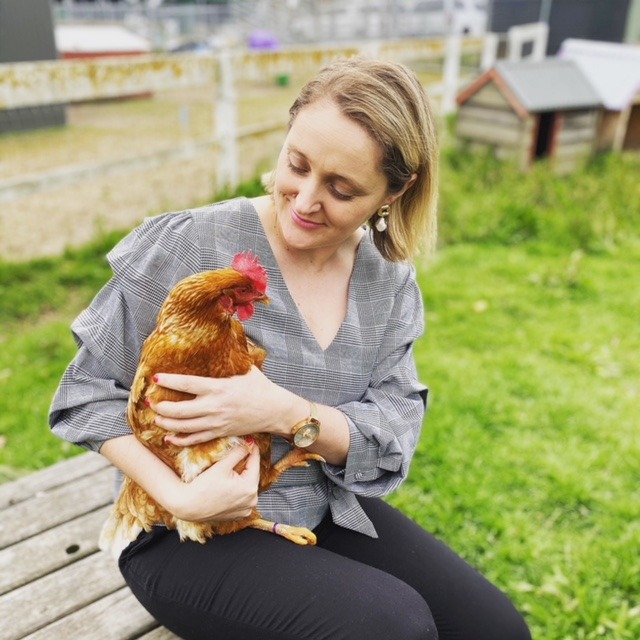
Getting business on board
This is where the foodservice sector and food manufacturing come into the equation. To bring about a complete end to farming hens in cages, every part of the food industry needs to be on board… And committed to change.
“Our approach to working with the industry, whether it be a cafe or a major retailer like Coles [which has committed to no longer using cage eggs in its Own Brand line], is to get all the parts of the chain committing to move the market,” Bertram says. “To really indicate to producers and farmers that they would be mad to invest in a cage system.”
One of the best ways to influence businesses – both large and small – is to educate the consumer. To get people thinking more about the foods they consume outside of the home, the RSPCA created the Choose Wisely campaign.
“We wanted to start conversations about where eggs are used beyond the retail environment,” Bertram says. “People might choose cage-free eggs when shopping at the supermarket, but they’ve never actually thought about it when they’re out at brunch.
“When people are eating out and eggs are on the menu – whether it’s Eggs Benedict or in pancakes – we want them to start being mindful of where the eggs have come from.”
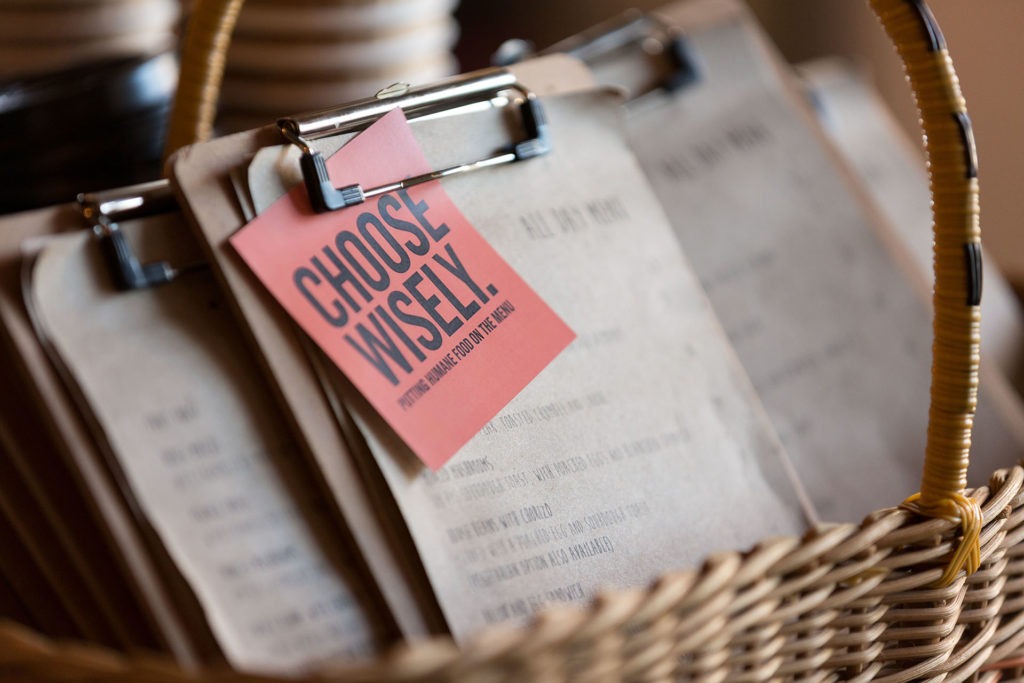
Macro opportunities
The Choose Wisely campaign recognises businesses that choose to use cage-free eggs. It also provides a resource for consumers to find local eateries that serve humane food. While many small businesses have come on board, big business is also starting to get involved, with chains such as Subway making the commitment to switch to cage-free eggs.
“Getting bigger-name business involved really does create macro opportunities for access,” Bertram says. “A really important driver of those market mechanisms is that what the consumer demands is then what business demands from producers and farmers.”
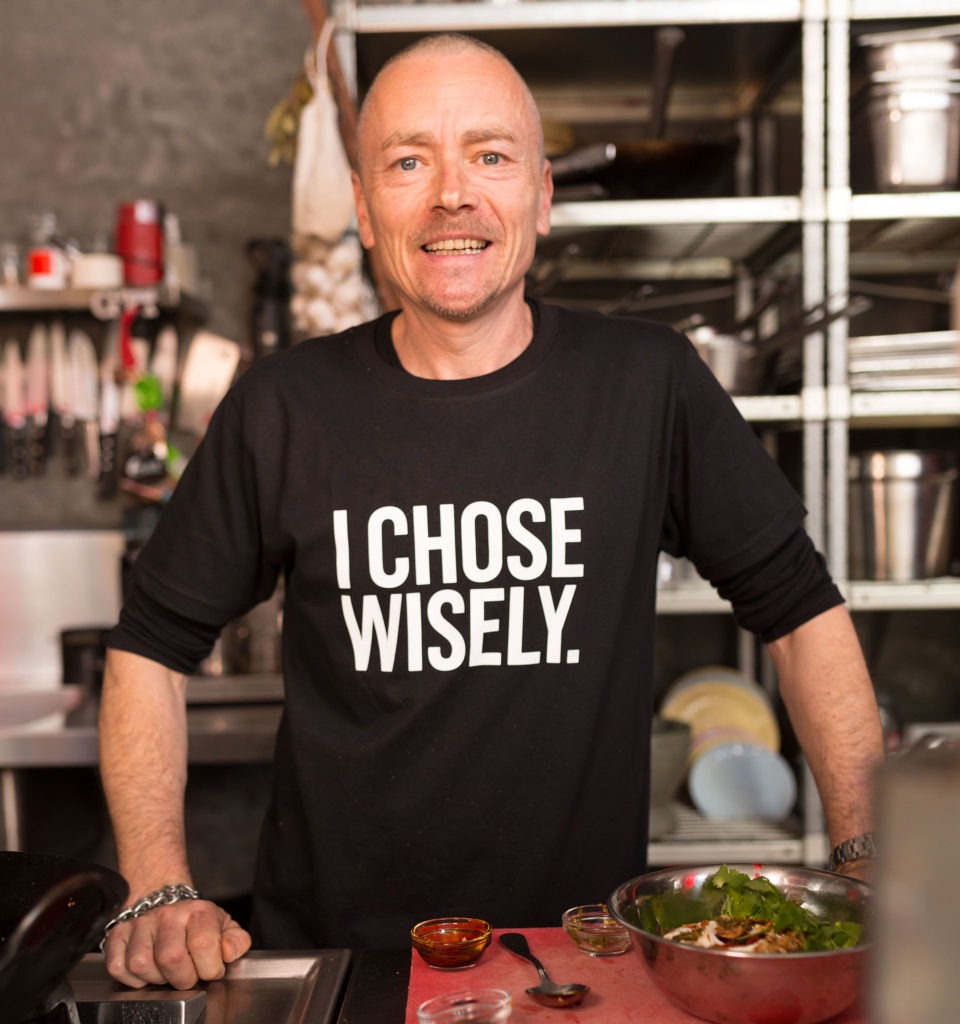
Start where you can make the most impact
Renowned chef Simon Bryant is an ambassador for Choose Wisely, and was an early adopter of putting humane food on the menu when he was Executive Chef at Hilton Adelaide.
“When I took over as exec chef at the Adelaide Hilton [in 2003], we made a commitment to go through every product – milk, eggs, meat, fish – and see if we could do better,” he says.
Changing the food supply chain of a major hotel is never going to be an easy task, and this was even more true in Australia almost 20 years ago, before words like “organic”, “free-range” and “ethical” were in everyday dining lexicon. So Bryant decided to take the softly, softly approach, breaking the hotel down into separate goals.
“We did the restaurant first, then the pastry kitchen, then the banquet, then the cafe,” he says. “By segmenting, we managed to get the whole hotel basically free-range.”
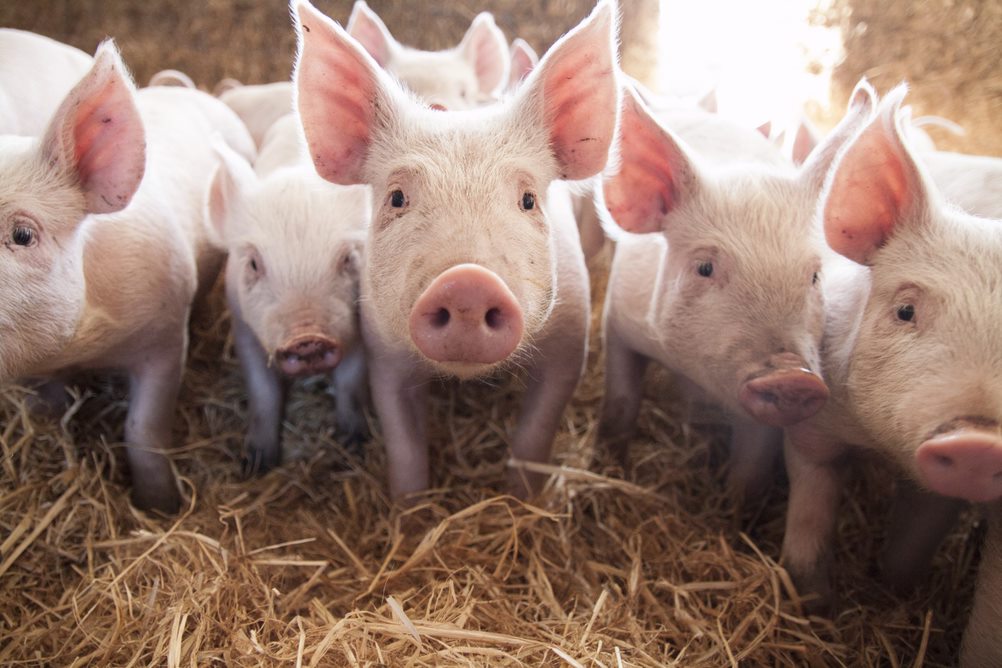
Making the switch
Foodservice is a tough industry. Bryant says he is not at all critical of those who can’t, or feel they can’t, make the switch to humane food.
“But my opinion is that I think you can,” he says. “Where I think we often get it wrong is that we try to fix everything all at once. If you really want to make a positive change, just look at where you can have the most impact.
“I would say that the most suffering in the food system – and it’s debatable – but the most suffering is in chicken and egg farming. So, if you can’t manage to use biodynamic, grass-fed, free-range beef, that’s fine. Just start somewhere.”
For other chefs, Bryant advises that if you want to make a positive change in your own kitchen, you need to present a firm case to the business owners
“My case was that it was the right thing to do – let’s be on the right side of history,” he says. “It wasn’t a marketable thing back then, but I knew it would be.
“It’s not just about consumers; some of my staff felt really proud of what we did. So, by making the switch, it might reduce staff turnover. There are many intangible levels to it.”
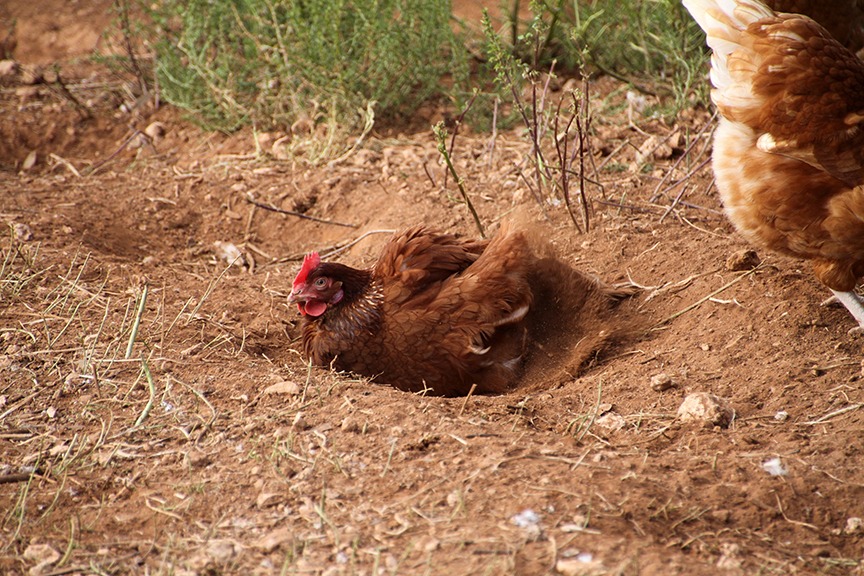
How does Australia stand up to the rest of the world?
While the RSPCA and its supporters have made some hugely positive changes over the past few decades, when it comes to animal welfare in the food and farming industries, Australia is still well behind the pack on the world stage.
“We’re probably at the back of the pack,” Bertram admits. “As an example, the UK has had a transition away from battery cages. New Zealand has also done so, and there are some state transitions within the United States.”
The standards and guidelines that set the legal requirements for farming in Australia are currently under review. The RSPCA is lobbying to see a final standard that includes a transition away from caged hens in Australia.
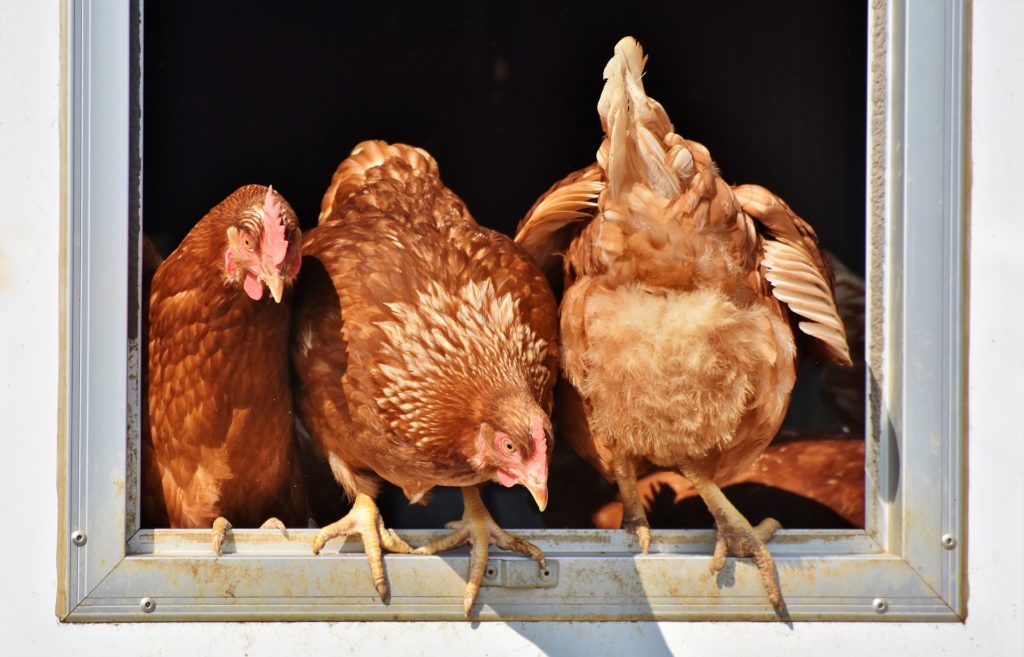
The power of the public
“As part of that whole process, there were more than 150,000 submissions made to the public consultation; it’s one of the largest public consultations in the history of these types of reviews,” Bertram says. “This shows that Australians really care about this issue. Consumers are voting with their wallet; the industry and retail brands are moving in the right direction. It’s just that our laws are still left behind.”
The last time the standards were reviewed, there was a decision to increase the size of cages in Australia. Each hen in a cage has about an A4 sheet of paper to stand on – that’s their entire space. The last review increased this space… By about the size of a coaster.
“But the cage egg industry still had to invest in slightly bigger cages,” Bertram says. “The very marginal increase to space for each bird led to a massive amount of investment in industry. So one of the barriers, from a cage egg farmer’s perspective, is they’d argue that they’re still paying off that capital they had to outlay since the last review.”
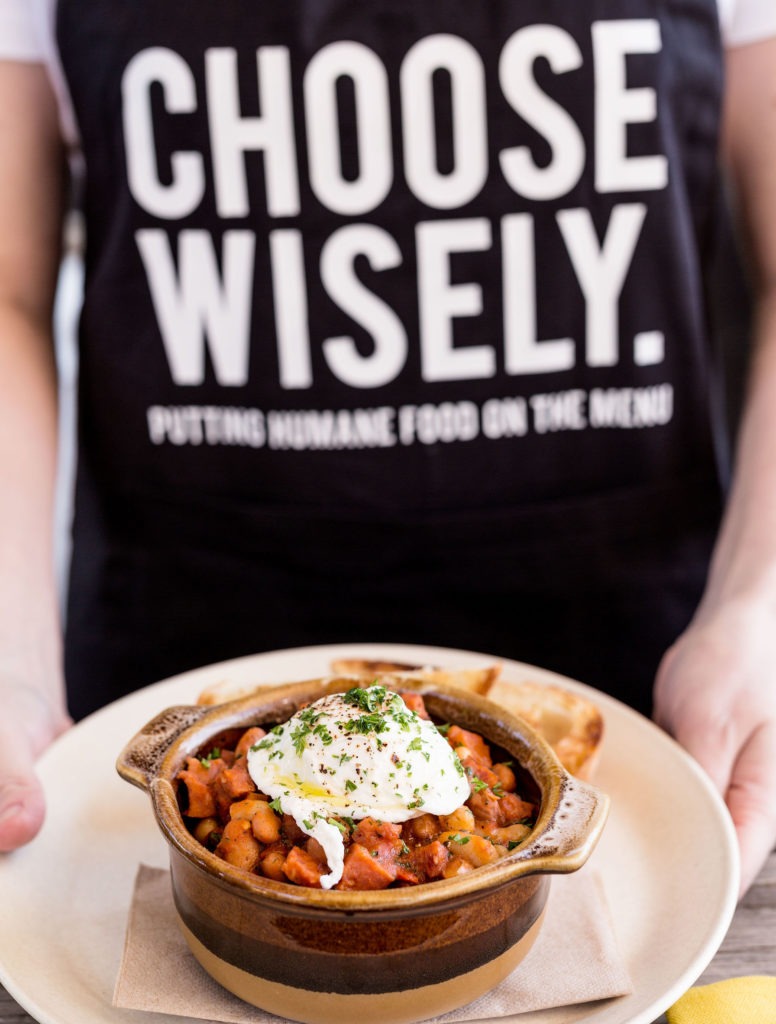
What you, as a consumer, can do
When you’re eating out, try to choose cafes and restaurants that use higher welfare eggs, chicken and pork. The RSPCA Choose Wisely website allows you to search for venues that serve humane food. If you’re dining somewhere that you’re unsure about, check the menu.
“If it’s not referenced on the menu, I think it’s great if consumers can ask that question of the cafe or restaurant,” Bertram says. “For instance, if you learn the eggs are caged eggs, then maybe tell them you’ll choose another option on the menu instead.
“The more people who ask about where their food comes from, the greater emphasis there will be on animal welfare for those businesses in future.”
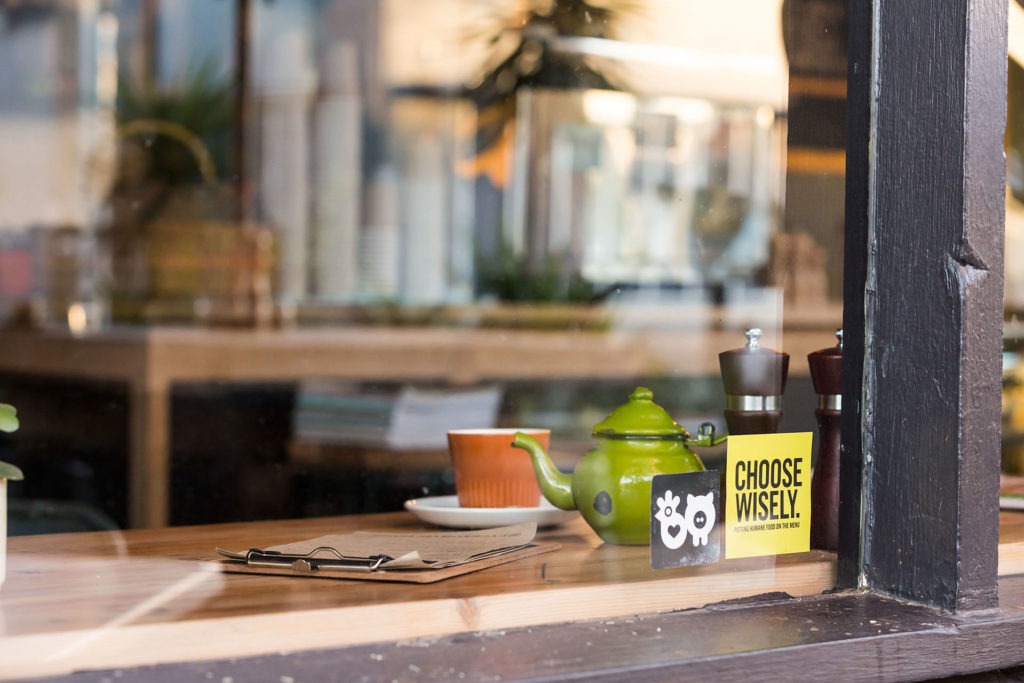
Check your labels
As well as choosing to eat at venues that serve humane food, and buying cage-free eggs and free-range meats and poultry for your home cooking, there’s a lot the everyday consumer can do to help the food industry continue its shift towards better animal welfare. Next time you’re out doing the weekly shop, take a look at other products that you buy.
“Consider products like baked goods and mayonnaises; there are many condiments and packaged foods that contain eggs,” Bertram says. “For some of these products, we’re starting to see some labelling regarding the use of cage-free eggs. There are some mayonnaises out there now that are only using free-range eggs, which is really positive.”
For products that don’t differentiate what type of eggs have been used, Bertram says it’s safe to assume that they contain cage eggs.
“What we think people should do is to start asking those brands what eggs they use,” she says. “It’s not only the power of what you put in your supermarket trolley. Reaching out to those companies and asking them, ‘Do the muffins in this pack use cage eggs?’ They are really important questions. And the more people that ask them, the greater emphasis there will be on animal welfare for those companies.”
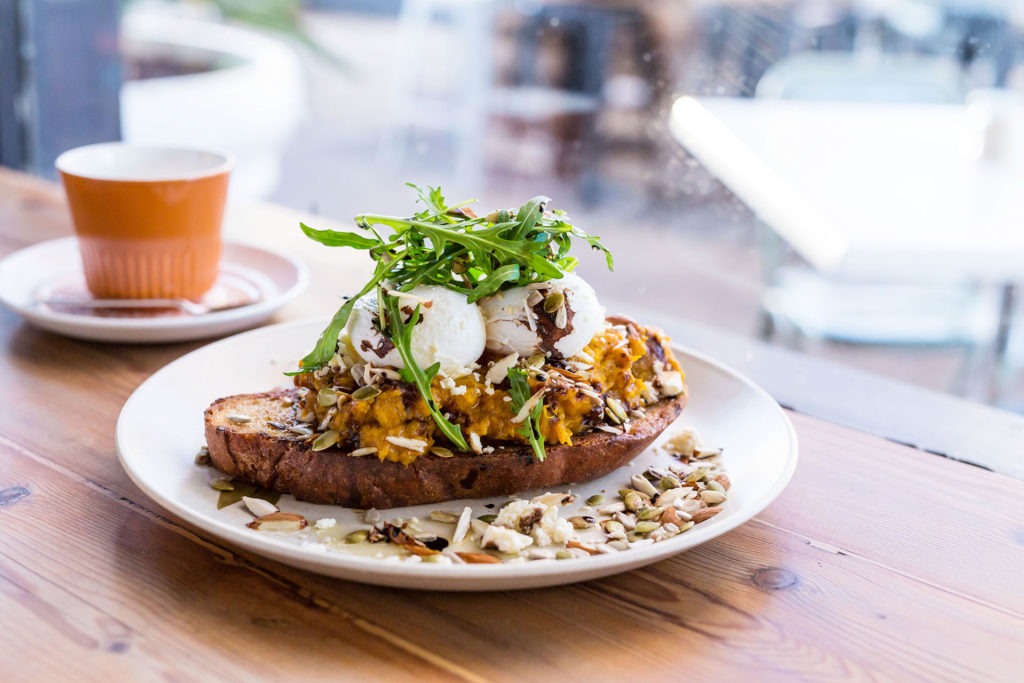
Be informed
Understanding that many foods are seasonal, and that prices and availability can vary, is another way that you can become more informed as a consumer.
“We had an uprising because of the way I did the menus back in the Hilton, because I didn’t serve oysters through January and February,” Bryant says. “That was unusual back then in the early 2000s. You just moved around and took them from here, there and everywhere. But we were only buying from a couple of farms in Coffin Bay, and when the oysters were spawning, they were off the menu.
“Customers would quite often jump up and down like lunatics. But when you communicated it to them why there were no oysters, they were okay with it. It’s all about communication.”
Of course, there’s also the option of choosing to follow a vegetarian or vegan diet, which takes the entire animal out of the equation. But this doesn’t mean the problem goes away.
“The RSPCA respects every individual’s decision, whether or not they choose to eat meat or eggs or products derived from animals, or use them for leather,” Bertram says. “Our view is that, while animals continue to be farmed, we have a job to improve their welfare.”
Want to be more informed? Check out the RSPCA’s Humane Food podcast. It covers all aspects of animal welfare in farming, including some of the more complicated or sensitive issues that are sometimes hard to find accurate information about. It’s a great way to raise your own awareness, and can help to start important conversations about food choices.


